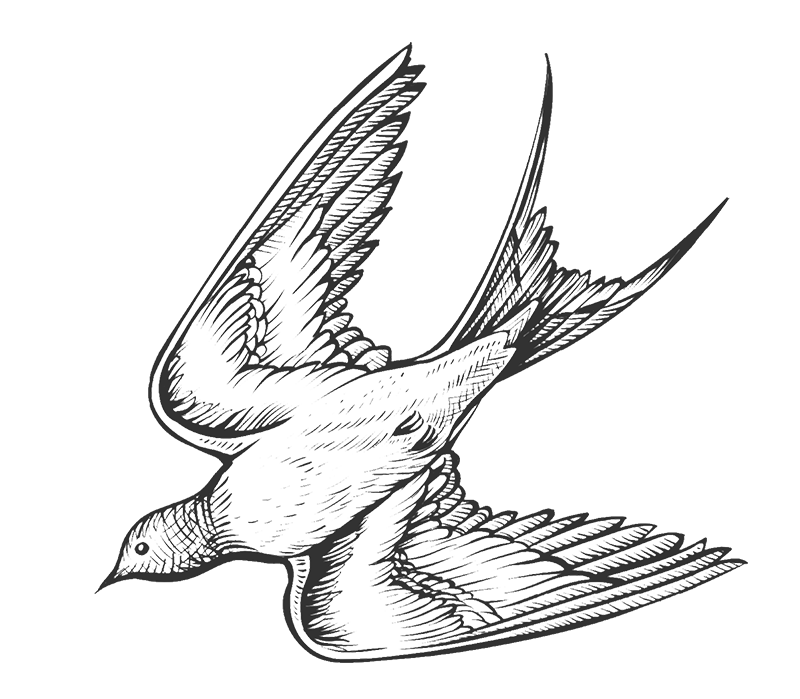Originally published March 1, 2023
In this essay, Amy Domini shares some personal memories about the virtues of spending time in nature. Companies, and we as consumers, hold a responsibility to safeguard nature and biodiversity. She sheds a light on what we need to do to get this done.

For most of my life, I have enjoyed taking long walks by myself in the woods and fields. When I was a young girl, these walks might have lasted a couple of hours. We lived in the Berkshire foothills, so the woods were hilly and full of boulders. As I grew into my teens and twenties, I spent time on Cape Cod and learned about walking over sandy beaches and rocky shores. In recent years, I’ve largely returned to the woods, where beaten trails are shaded and filled with discoverable wonders.
Walks provide a person with a chance to accomplish a great deal. One gets a bit of exercise, a chance to meditate, a chance to discover and, for some, the thrill of exhaustion. As a young girl, I could walk through woods that led to a cow farm. It was only because of an old stone wall that I knew a farm had once been on that location. There was a spongy spot marking a shallow spring, and it was surrounded by a yellow flower I knew was cowslip because I was a Girl Scout and studied such things.
Once, as I was resting against a fallen tree that often had bugs and mushrooms on it, a small bird stopped nearby. We locked eyes and stared at each other for a long time. When I went home, I tried to identify it but failed. Another area had small birch trees, some white and some black. The black birch has bark that is sweet, like spearmint, and I’d stop and suck on bits of it. The thin white birch trees were supple. I could pull their heads low and grab a spot. Then with a little jump I’d be lifted off my feet and gently set down in another spot.
Pristine natural environments give us a gift, and that gift is a lasting one. Pristine places are important. Much as I love the manicured parks of the great cities, and much as I love the manicured little garden on my own land, it was the earlier experience of untouched places that gave me the ability to find peace in a bird’s stare.
Today, I work with ethical investors, and I recognize that our natural environment is an important partner to humankind and to corporations. Corporations depend heavily on a functional natural ecosystem for so many things, but do they recognize that in a partnership there is give and take? That’s what ethical investors care about. For example, most U.S. home-building companies have a business model that is not great for the planet. They find a pristine place and put in roads and yards and houses. The houses they build have terrible carbon footprints and must be arrived at by car, another environmental problem. But in England, the laws are different. Houses are frequently built on old brownfields and other land that has been despoiled.
These houses are situated near public transit and bike lanes and are ecologically designed to function as a small village. The website of one company speaks of building around the centuries-old hedges that stood on the land.
So, there is good news. Climate change has not gone unnoticed by institutional investors, who for some years now have been putting pressure on corporate leadership to disclose their carbon footprints, to reduce their waste, and to manage their affairs with greater ecological efficiency. There is also good news on the corporate side as more and more companies take steps to do a better job.
Corporations depend heavily on a functional natural ecosystem for so many things, but do they recognize that in a partnership there is give and take?
Corporations in and of themselves are a problem, but they are not the only one. They survive by selling what people believe they need, or at least want. Who has not seen photographs of children living in favelas built on garbage heaps? Who has not seen photographs of children dipping a cup into a barrel of water, a barrel clearly labeled as containing hazardous materials? These children will never take a long walk out to where the birch trees sway. You and I are the problem, and the reason is our uncontrolled consumption.
Face it: Those reading this column have more than they need. A small home with sparse furnishings and a couple of changes of clothes was plenty for millennia. But because we want more, we feed the beast. And the beast of capitalism finds ways to get us more stuff at a price point we feel good about. That means creating externalities, like not caring where our T-shirt was made or how the copper was mined. We privatize profit to get to get ourselves stuff, while channeling the health and environmental costs onto those poor young children.
It is important that we enjoy and protect pristine spaces. It is also important that we live without every delight our minds can imagine. The pristine space and natural joys of childhood are giving way to our quest for stuff; when you think it through, that’s just wrong.
